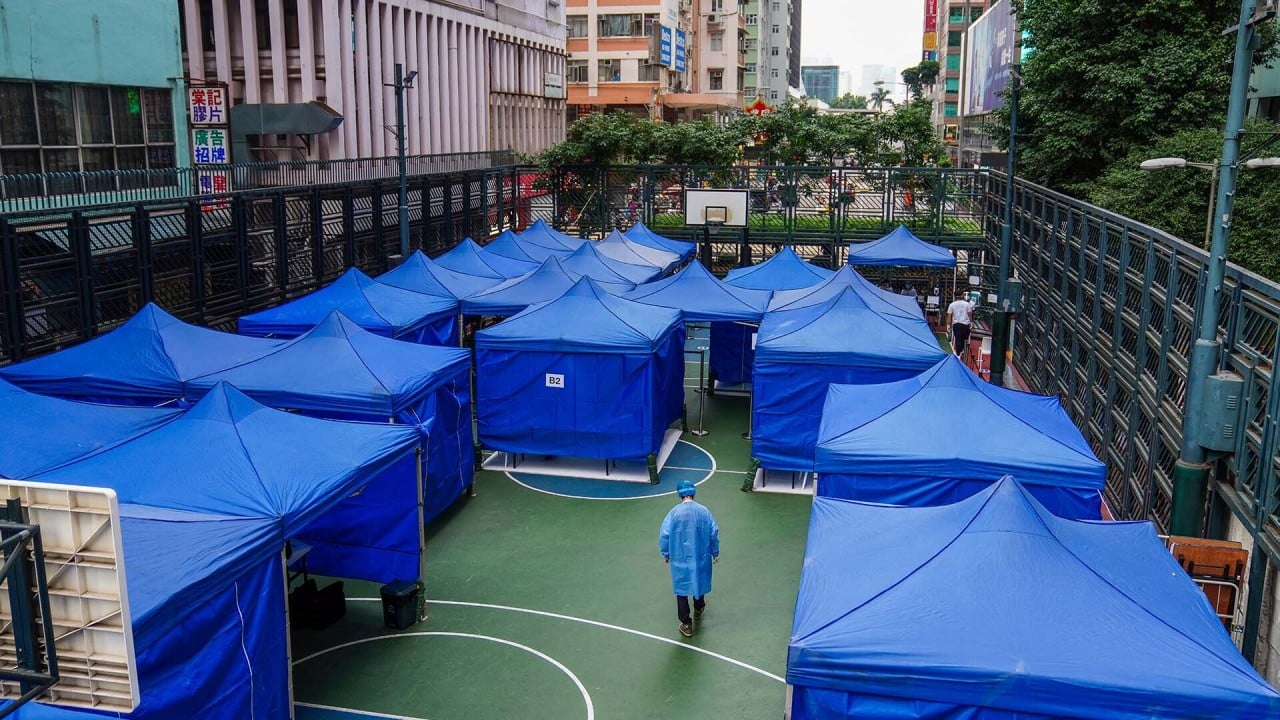
Hong Kong property developers expand into co-working sector as demand for proper offices dwindles
- All big companies are rethinking their space usage, with one eye on minimising costs, says Wendy Lam of Eaton Club
- Small companies looking to remain flexible and avoid upfront capex, will view serviced offices as an option: Cushman
Hong Kong’s property developers are expanding to the co-working sector amid dwindling demand for proper offices, even though some major operators have surrendered office space or exited the city altogether.
The number of operators in the city has dipped slightly from around 15 during a market peak in mid-2018 to 13 now, while the number of centres has dropped from 39 in 2018 to 34 now, according to Knight Frank.
All big companies are rethinking their space usage, with one eye on minimising costs, said Wendy Lam, the head of Eaton Club, a co-working space subsidiary of Hong Kong property developer Great Eagle Holdings. These companies are adopting a “core-and-flex” strategy, with their core teams located in offices around Hong Kong’s Central district and others working from flexible workspaces, an approach that is more flexible and helps reduce capital expenditure.

02:02
Fourth wave of coronavirus cases in Hong Kong prompts tougher Covid-19 measures
The current economic climate suits the flexible workspace industry. “A lot of landlords are thinking about [expanding into the co-working industry]. It is possible they may open their own centres, because this model works,” Lam said, adding that demand will increase.
Eaton Club said occupancy at its co-working spaces had stood between 70 per cent and 80 per cent over the past two years. It opened a fourth co-working space this year to capture demand from companies that have downsized or are adopting a more flexible real estate strategy. Its four centres cover 70,000 sq ft, with three of them located in Champion Tower in Central and in Langham Place in Mong Kok. It’s newest space, in Great Eagle Centre in Wan Chai, measures 1,700 sq ft and has a capacity of more than 200 people. Spaces at the centre start at about HK$3,000 (US$387) a month.
Lam said the co-working space at Great Eagle Centre had not been opened to help Eaton Club’s parent company, and that rent and lease terms had been negotiated at market levels.
Eaton Club reported year-on-year growth of between 20 per cent and 25 per cent in revenue and profit in the first half of this year, she added.
State-owned conglomerate China Resources opened CRB, or the China Resources Building Business Lounge, in October in a co-working space previously occupied by Regus following some renovation work. Regus vacated the premises at the end of last year.
According to market sources, property developer Hongkong Land was also going to open a co-working centre. It did not respond to requests for comment.
Meanwhile, co-working operators such as Metro Workshop are offering spaces for as low as HK$2,500 a month for a hot desk in Wan Chai. Campfire even promises to match any lower qualified price that users can find, it said in an email.

